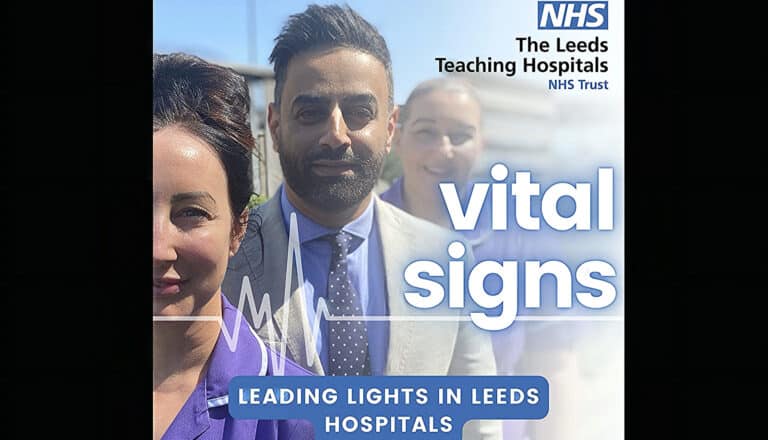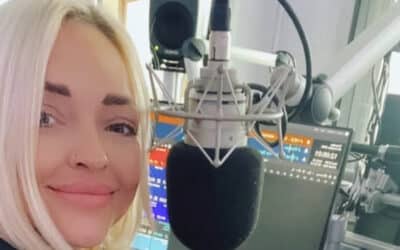From ‘A day in the life of the Major Trauma Unit’ to ‘A journey through liver transplantation’ a new four-part podcast series, Vital Signs, captures the daily lives of the incredible people and services in at Leeds Teaching Hospitals.
Following the success of the BBC television series Saving Lives in Leeds, the eight-part access all areas documentary that aired earlier in the year, the Trust now invites listeners to take a deeper dive into some of the key areas of the hospital’s work.
Each 30-minute episode, produced by Leeds’ This Is Distorted, brings several voices together to explore a particular speciality they work in. One episode unveils the power of play at Leeds Children’s Hospital, where specialist playworker Natalie uses distraction and preparation techniques, tailored for each young person to help them process and manage their appointments.
In the episode on future talent, a midwifery degree apprentice and a pioneering gynaecology surgeon give two very different accounts of their working lives and how their learning brings about better patient care.
In the tenth anniversary year of the Major Trauma Centre at Leeds, different characters bring their working day to life as they talk about the importance and challenges of getting along with each other and why Leeds is leading in the field of trauma care.
And a fourth episode follows the story in the liver transplant team and the journey that takes place to deliver a new organ to a patient. Leeds is a national centre for liver transplant, just one of the specialties that sets the Trust apart.
A new episode is being made available each week from today (Tuesday, August 29,) with new episodes dropping every Monday on all main podcast platforms.
Shahid Farid, consultant transplant surgeon, Leeds Teaching Hospitals, said: “I was keen to take part in this new podcast series, to reveal some of the behind-the-scenes activity at work in a large and incredibly busy teaching hospital such as Leeds.
“We undertake some exceptional work here in Leeds, not just for patients in the city, but as a specialist centre for patients travelling from further afield. To be able to spotlight some of those services and the complex number of people involved, is a really great opportunity.”














